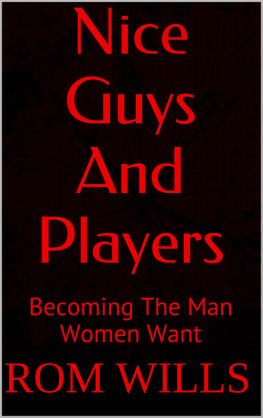
ALSO BY PACO UNDERHILL
Why We Buy: The Science of Shopping
Call of the Mall


Simon & Schuster
1230 Avenue of the Americas
New York, NY 10020
www.SimonandSchuster.com
Copyright 2010 by Peckshee, LLP
All rights reserved, including the right to reproduce this book or
portions thereof in any form whatsoever. For information, address
Simon & Schuster Subsidiary Rights Department,
1230 Avenue of the Americas, New York, NY 10020.
First Simon & Schuster hardcover edition July 2010
SIMON & SCHUSTER and colophon are registered
trademarks of Simon & Schuster, Inc.
For information about special discounts for bulk purchases,
please contact Simon & Schuster Special Sales at
1-866-506-1949 or business@simonandschuster.com.
The Simon & Schuster Speakers Bureau can bring authors
to your live event. For more information or to book an event,
contact the Simon & Schuster Speakers Bureau at
1-866-248-3049 or visit our website at www.simonspeakers.com.
Designed by Jill Putorti
Manufactured in the United States of America
10 9 8 7 6 5 4 3 2 1
Library of Congress Cataloging-in-Publication Data is available.
ISBN 978-1-4165-6995-4
ISBN 978-1-4165-7020-2 (ebook)
To Uncle Toby and Aunt Aubrey, with gratitude and love
CONTENTS
INTRODUCTION
As I make my way around the world, I see it everywhere: the expanded cultural, social, and economic influence of women.
For a bald, aging retail wonk whos spent a lifetime wrestling with a stutter, and who Malcolm Gladwell described in his New Yorker magazine profile as almost goofy looking, I do a lot of public speakingw meetings, retreats, and gala dinners. It comes to around forty paid engagements a year. Theyre good ways to drum up business and get some media attention. In just about every speech I deliver, I include one line:
We live in a world that is owned by men, designed by men, and managed by menand yet we expect women to be active participants in it.
People laugh. Theres a lot of nodding. Men and women can both identify. From Singapore to Texas, from Dubai to Mexico City, from Dublin to So Paolo, one of the seminal questions I ask is, What makes this package, product, space, design, or service female-friendly?
Im not trying to be provocative or condescending. Im not bringing any moral or feminist agendas to the question, either.
Im simply acknowledging the increased social and professional dominance of females across the world. Its a rapidly spreading evolution I am well positioned to observe, process, and describe within the physical world and the global marketplace, whether it can be seen physically, in packaging, cars, appliances, and clothing; places, such as homes, hotels, offices, stores, restaurants, and attractions; or in plain old everyday services, such as Internet commerce, maid services, banks, and rental car agencies.
Maybe youre already aware of the effect females have had on our culture. Maybe you simply had your suspicions. But the cumulative effect is striking, and in many cases dramatic.
For example, did you know that:
Approximately 70 percent of all American females work outside the home.
Women control not just a percentage of active income in the worldi.e., money they take home from their own jobsbut a large percentage of passive income, meaning family money, or money theyve inherited.
Women dominate higher education. Most college and university campuses across the United States and Canada are 60-40 female.
Today, record numbers of females are studying engineering, physics, computer science, biology, and clinical psychology.
The top tiers of businessas well as of medicine, law, and scienceare increasingly female, a trend that began in the 1970s, as women began to overrun educational programs that trained them to become lawyers, physicians, and architectsjust a handful of professions that were once typically male.
With the exception of the pickup truck, females influence almost every successful car thats come out of Detroit, whether its the family minivan or the half-tank, half-observation post, secure colossus known as the SUV (which was never intended to be a macho vehicle).
Women run households and companies, are attending business schools in record numbers, and make up an increasing percentage of todays global business travelers.
Females make up a huge majority of all book buyers in the United States.
Women are the acquisitioners of food on behalf of their entire families. They are behind farmers markets and the organic food movement.
Women choreograph the social lives of their families, and have a decisive say as to whether or not the family will spend school break camping in Big Bend, sunbathing on Nantucket, or staying home.
Women continue to create their own films and TV shows, as well as their own brands of humor, visual art, and music.
Sure, some of these examples are more conspicuous than others. Some are downright stealthythe way the organic food movement has taken off, for example, or the way that, despite current pay inequities across the entertainment industry, a wicked-witted female writer and comedian named Tina Fey completely skewed our last presidential election.
It will never be absolutely equal between the sexes, but women are catching up. And its only going to get more noticeable.
Enough so that if youre a man running a business, and if the power and influence females wield hasnt completely registered on your radar screen, well, then, what youve got here is a failure to communicate. If your store, restaurant, bank, hotel lobby, mall, or other public space or amenity doesnt acknowledge the female factor, if it doesnt invite women in and make them feel at home, at ease, safe, hygienic, respected, and in control, if it doesnt take into account what women want and expect (which is a whole lot different from what men want and expect), well, then, its bad business. You also risk losing forever a powerful majority of consumers who are more than happygleeful, even!to tell all their friends and acquaintances about your dirty dressing rooms, subpar lighting, creepy hotel lobby, brusque customer service, dingy mirrors or no mirrors at all, and an overall vibe of being treated like a second-class citizen.
In my experience, women are pretty good at spreading the word.

In 2005, a magical statistic stood out: for the first time in history, young women under the age of thirty in the largest American cities overtook men in earning power.
It was a shift that began in the late 1990s in urban areas like Los Angeles and Dallas. By the year 2000, it had migrated to New York City, when male and female wages came in more or less at a dead heat. Five years later, full-time working females between the ages of twenty-one and thirty living in one of the five boroughs of New York City brought home 117 percent of the wages of equivalent working males. To put it another way, for every guy pulling in a median salary of $30,560, an equivalent female was banking $35,653. And Texas isnt associated with big bucks, big hair, and big everything for nothing. In Dallas, womens wage-earning advantage over men was 120 percentthe highest in the nation.
Next page











